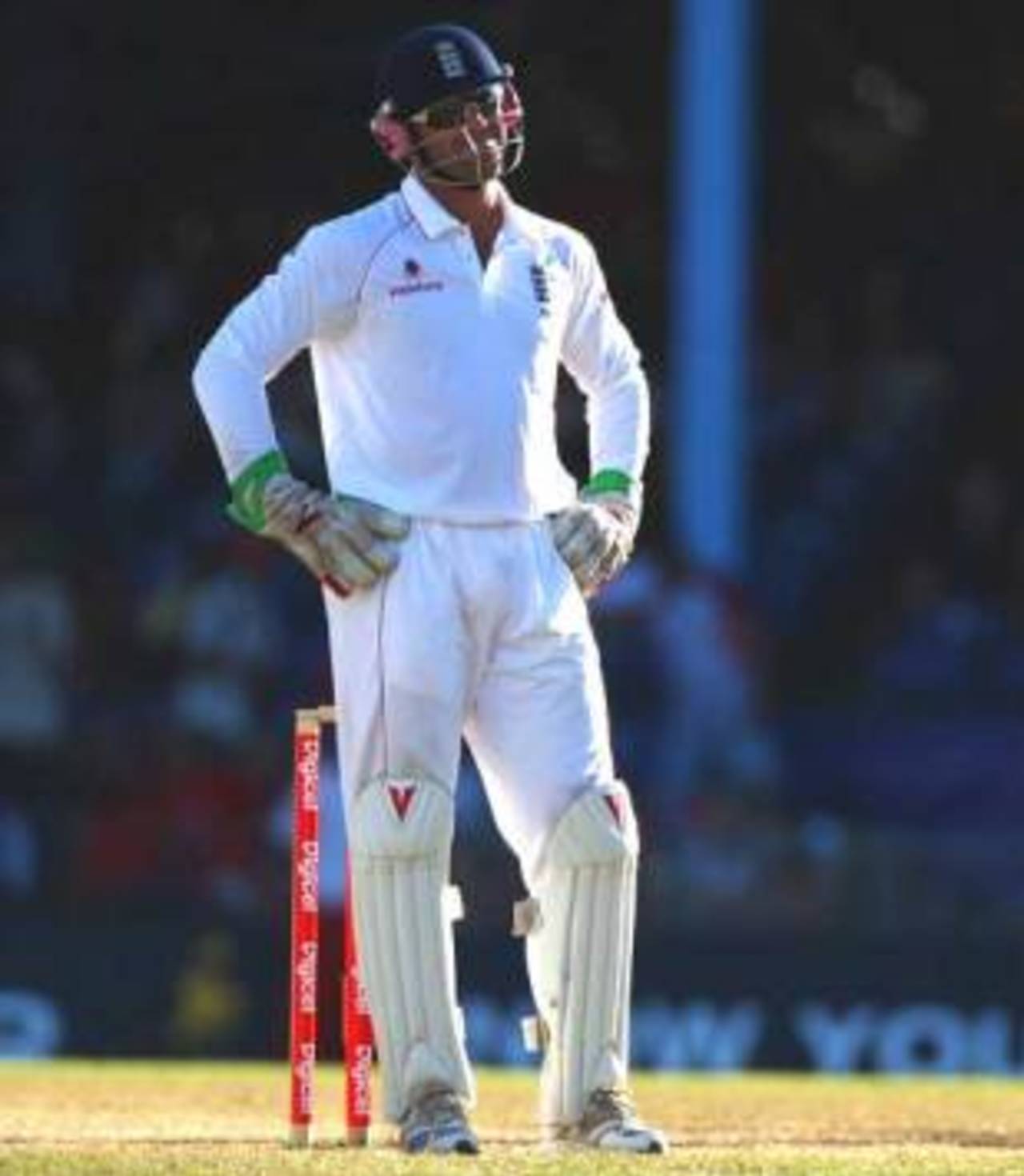Prior's unwanted record, and the biggest 10-wicket win
The most byes conceded, hundreds against every Test team, and the unholy trinity

Matt Prior became the first wicketkeeper to break the 50-byes barrier recently • Julian Herbert/Getty Images
Steven Lynch is the editor of the Cricinfo Guide to International Cricket (reviewed here). If you want to ask Steven a question, use our feedback form. The most interesting questions will be answered here each week